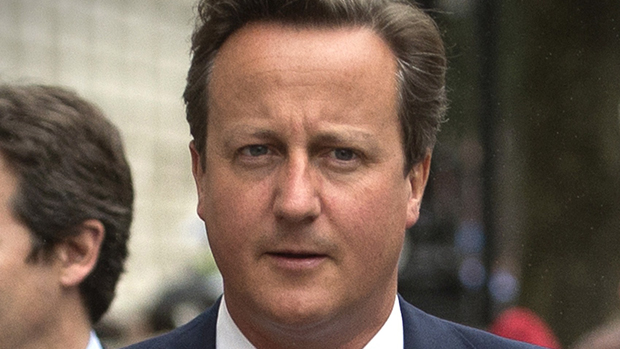Islamic State: should UK pay ransom for British hostage?
Deaths of James Foley and Steven Sotloff highlight different responses to kidnappers in the West

A free daily email with the biggest news stories of the day – and the best features from TheWeek.com
You are now subscribed
Your newsletter sign-up was successful
Prime Minister David Cameron has refused to make a ransom payment to save a British hostage whose life is under threat from Islamic State jihadists. Like the United States, Cameron insists that the UK does not pay ransoms and has accused other countries that are willing to do so of fuelling terrorism.
The results of the US policy can be seen in the two harrowing videos of James Foley and Steven Sotloff being apparently beheaded by a masked jihadist. Foley's family confirmed that his captors had demanded a ransom of $132m, which the US refused to pay. Yet his European colleagues held by the same group were released just months earlier after their governments allegedly paid to set them free.
Last year G8 leaders signed a policy statement acknowledging that ransoms incentivised future kidnappings thereby increasing the risks to their citizens. But only the US and UK appear to have stuck to the agreement – with the US even launching prosecutions for funding terrorism against organisations who try to pay ransoms for their employees.
The Week
Escape your echo chamber. Get the facts behind the news, plus analysis from multiple perspectives.

Sign up for The Week's Free Newsletters
From our morning news briefing to a weekly Good News Newsletter, get the best of The Week delivered directly to your inbox.
From our morning news briefing to a weekly Good News Newsletter, get the best of The Week delivered directly to your inbox.
In the Daily Telegraph, David Blair says that the French, Italian and Spanish governments, along with others in Continental Europe, have "a long record of directly paying ransoms".
While European governments deny paying ransoms, an investigation by the New York Times found that al-Qaeda and its direct affiliates have taken in at least $125m in revenue from kidnappings since 2008, of which $66m was paid last year alone.
"Of course, for the families and friends of hostages, bringing back their loved ones is deemed worth any price," says Adjoa Anyimadu in The Guardian. She points out that rescue missions are not always successful and some countries do not have the military power required to even attempt one.
But William Saletan, writing in Slate, says the problem goes beyond just incentivising hostage takers. "If you pay a ransom, you're not just fuelling the kidnap market," he says. "You're also funding Isis's war and its atrocities against civilians."
A free daily email with the biggest news stories of the day – and the best features from TheWeek.com
David Rohde, a former Taliban hostage writing for Reuters, says Foley's execution was a "chilling wake-up call" for American and European policy-makers about their "vastly different" responses to kidnappings. Rohde, who eventually escaped from captivity, says: "One clear lesson that has emerged in recent years is that security threats are more effectively countered by united American and European action... The current haphazard approach is failing."
-
 The Olympic timekeepers keeping the Games on track
The Olympic timekeepers keeping the Games on trackUnder the Radar Swiss watchmaking giant Omega has been at the finish line of every Olympic Games for nearly 100 years
-
 Will increasing tensions with Iran boil over into war?
Will increasing tensions with Iran boil over into war?Today’s Big Question President Donald Trump has recently been threatening the country
-
 Corruption: The spy sheikh and the president
Corruption: The spy sheikh and the presidentFeature Trump is at the center of another scandal
-
 Epstein files topple law CEO, roil UK government
Epstein files topple law CEO, roil UK governmentSpeed Read Peter Mandelson, Britain’s former ambassador to the US, is caught up in the scandal
-
 Iran and US prepare to meet after skirmishes
Iran and US prepare to meet after skirmishesSpeed Read The incident comes amid heightened tensions in the Middle East
-
 Israel retrieves final hostage’s body from Gaza
Israel retrieves final hostage’s body from GazaSpeed Read The 24-year-old police officer was killed during the initial Hamas attack
-
 China’s Xi targets top general in growing purge
China’s Xi targets top general in growing purgeSpeed Read Zhang Youxia is being investigated over ‘grave violations’ of the law
-
 Panama and Canada are negotiating over a crucial copper mine
Panama and Canada are negotiating over a crucial copper mineIn the Spotlight Panama is set to make a final decision on the mine this summer
-
 Why Greenland’s natural resources are nearly impossible to mine
Why Greenland’s natural resources are nearly impossible to mineThe Explainer The country’s natural landscape makes the task extremely difficult
-
 Iran cuts internet as protests escalate
Iran cuts internet as protests escalateSpeed Reada Government buildings across the country have been set on fire
-
 US nabs ‘shadow’ tanker claimed by Russia
US nabs ‘shadow’ tanker claimed by RussiaSpeed Read The ship was one of two vessels seized by the US military